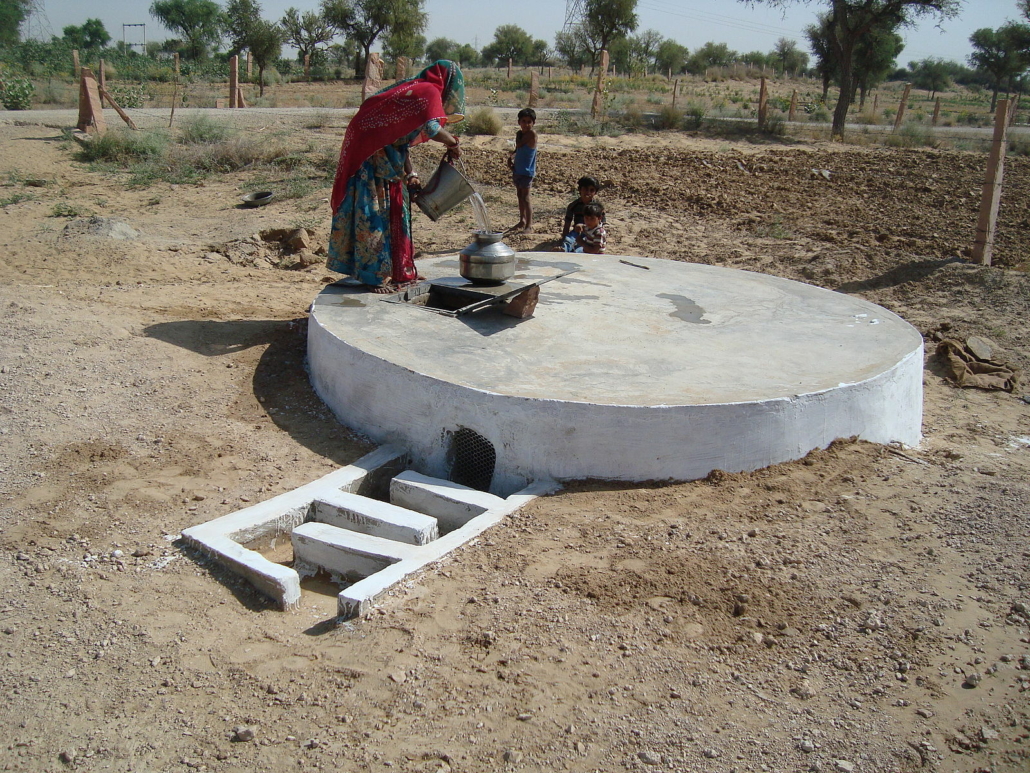Wakal River Basin Project
The Wakal River basin is located in the south of Rajasthan, a region in the northwest of India. The Wakal River Basin project is a local scheme to increase sustainable water supply.
Rajasthan, a region in north-west India, is the poorest and driest part of the country. The Thar Desert dominates the region, which experiences extreme temperatures, reaching up to 53°C in the summer. The annual rainfall is very low, with less than 250 mm falling mainly during the monsoon season between June and September. There is very little surface water, as rain quickly infiltrates the land and evaporation rates are very high.
What are the issues with water supply?
Due to historical mismanagement, the water supply presents considerable challenges. Excessive irrigation has resulted in waterlogging and salinisation. At the same time, over-abstraction from unregulated pumps has depleted aquifers (natural underground water stores), causing the water table to fall and wells to dry. Little coordinated water management has occurred, as villages and individual households control access to wells. As water use is unregulated, people have taken what they need without allowing groundwater sources to recharge, and water scarcity has become a significant issue.
The Wakal River Basin Project
Addressing these challenges, the Wakal River Basin Project, situated in Rajasthan’s southern part, has received funding from the United States Agency for International Development (USAID) as part of the Global Water for Sustainability Program from 2004 to 2014. This initiative has focused on enhancing water security by engaging local communities in the management process. The aims of the project are to:
- Increase water supply and storage with locally adapted solutions
- Raise community awareness regarding sustainable water management.
Local communities have been fully involved in the project. They are in charge of setting up and maintaining the scheme, which enables them to improve their water security and reduce their risk of future water shortages.
Increasing Water Supply
The project has promoted rainwater harvesting to boost water supply, which has benefited villages and families alike.
The strategies used include:
- Rainwater harvesting by constructing taankas, underground storage tanks that store water gathered from rooftops. Concrete taankas protect the water from evaporation and provide a local source of water. A taanka can hold 20,000 litres, enough to supply a family with water for several months.

A villager collects water from a taanka in the Thar Desert – source
- Joheds, small earth dams that capture rainwater, have increased the water table by up to 6m, enabling rivers that previously dried once the monsoon season was over to flow year-round.
- Pats, or irrigation canals, have been developed to channel water captured by joheds to fields to water crops. Water is diverted using a stone dam called a bund. Farmers take it in turn to use the water, which is used daily across the community. When it is their turn, they are also responsible for maintaining the irrigation channels to ensure they do not silt up.
- Education plays a pivotal role in this project. Communities are educated about water conservation, fostering a collective effort to maintain water security. This approach helps mitigate soil erosion, desertification, and groundwater pollution.
Summary
Flashcards
Quiz
Resource Management
Menu coming soon

